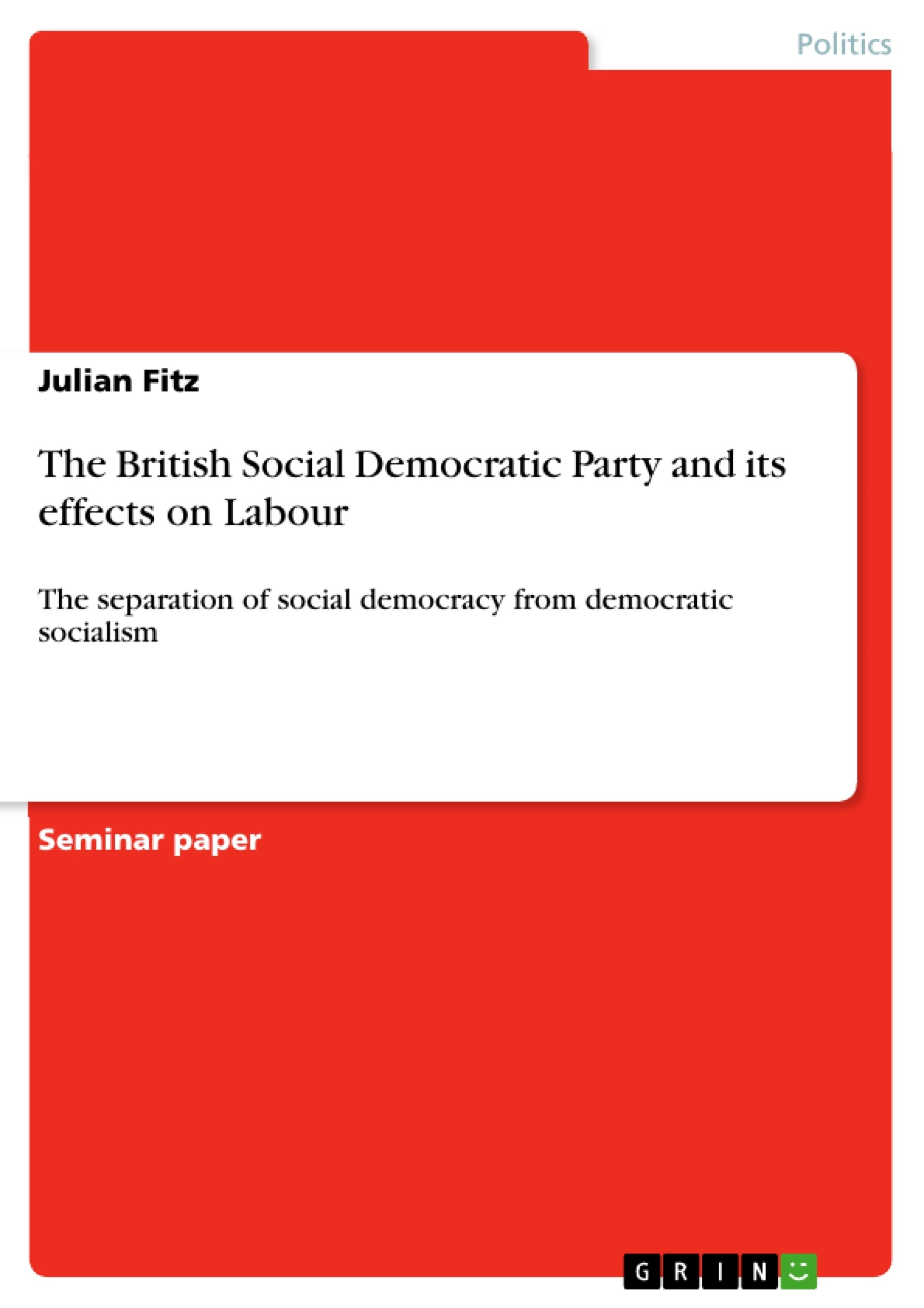The very idea of the British Labour party and other movements referring to democratic socialism as their ideal is to “pursue a socialist agenda through democratic institutions, such as free elections and parliament” . Especially in strongly majority based electoral systems such as in the United Kingdom it is difficult to win an election if one political current is represented by more than one party, thus incoherently. The incoherence within such a movement is then perceived as being a threat to the movement itself. As former Labour Prime Minister Clement Attlee (1883-1967) put it “What is quite intolerable is the existence of a party within a party, with separate leadership, separate meetings, supported by its own press. It is inimical to effective action in the House. It breads suspicion and uneasiness throughout the movement.”
Similar reproaches were made when in 1981 a group of former Labour politicians formed the Social Democratic Party (SDP) of the United Kingdom. Many democratic socialists or social democrats feared a division of the nation’s political left. It can be argued that such a division indeed occurred and led to Labour’s lowest election score in 1983 with 27.6% of votes cast, only 2.2% more than the Social Democratic Party with its liberal ally. By 1988 Labour had adapted a more moderate political outline and after a number of election defeats the majority of SDP members and MPs merged with the Liberal Party to form the Liberal Democratic Party.
The British Social Democratic Party and its effects on Labour
The separation of social democracy from democratic socialism

Term Paper , 2010 , 9 Pages , Grade: 18/20
Autor:in: Julian Fitz (Author)
Politics - Region: Western Europe
Excerpt & Details Look inside the ebook

